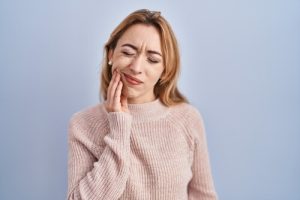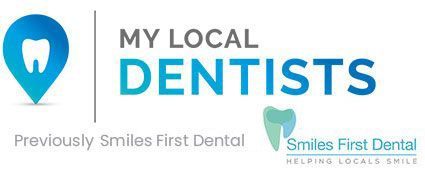Unbearable Tooth Pain: What To Do When You Have Severe Toothache

Regarding dental discomfort, few things can be as excruciating as unbearable tooth pain. An affected tooth’s throbbing, pulsating sensation can quickly become intolerable, affecting your ability to eat, sleep, and focus on anything else.
Whether you’re experiencing this level of dental agony due to tooth decay, a dental injury, or an underlying issue, the urgent question is, “What can you do to find relief?”
This comprehensive guide will tap into unbearable tooth pain and provide valuable insights into managing it effectively. From immediate at-home remedies to the importance of professional dental care, we’ve got you covered.
Your oral health is essential, and knowing what steps to take when confronted with unbearable tooth pain can make all the difference in your comfort and well-being.
Understanding Unbearable Tooth Pain
 Unbearable tooth pain can take various forms, from a constant dull ache to sharp, intermittent bursts of discomfort. It can be triggered by a range of factors, including dental decay, gum disease, dental injuries, and even stress-related teeth grinding.
Unbearable tooth pain can take various forms, from a constant dull ache to sharp, intermittent bursts of discomfort. It can be triggered by a range of factors, including dental decay, gum disease, dental injuries, and even stress-related teeth grinding.
Regardless of the cause, the priority is finding relief and addressing the root issue to prevent further dental problems.
So, if you’re currently experiencing unbearable tooth pain, what should you do? Read on to discover effective strategies for managing toothache and regaining control of your oral health.
Immediate Tooth Pain Relief
If you find yourself suddenly experiencing unbearable tooth pain, here are some immediate steps you can take to help alleviate the discomfort while waiting to see an emergency dentist:
- Rinse Your Mouth: Use warm water to clean the affected area. Lukewarm water can help remove debris and any loose particles irritating.
- Floss Gently: Carefully floss between your teeth to ensure nothing is lodged between them, which can exacerbate the pain. Be gentle to avoid causing further damage.
- Over-The-Counter Pain Relief: Consider taking an over-the-counter pain reliever like ibuprofen or acetaminophen, following the manufacturer’s instructions. OTC medications can help reduce inflammation and ease the pain temporarily.
- Cold Compress: Apply a cold compress to the outside of your cheek near the painful area to reduce swelling and numb the pain. Use it in short intervals, around 15 minutes, and avoid direct contact with your skin.
- Avoid Certain Foods: Stick to soft, non-acidic, and non-sugary foods that won’t exacerbate the pain. Avoid extremely hot and cold foods and beverages.
- Elevate Your Head: Elevate your head while sleeping to lower blood flow to your affected area, potentially minimising throbbing pain. Use an extra pillow to prop up your head.
- Topical Anaesthetic: You can apply a topical oral anaesthetic gel, temporarily relieving the painful area. Follow the product’s instructions carefully.
- Stay Hydrated: Drinking water can help maintain saliva production and prevent dry mouth because it can worsen tooth pain.
- Avoid OTC Gels on Broken Teeth: Be cautious with over-the-counter gels if you suspect a broken tooth. They can cause further damage when applied directly to a broken or exposed nerve.
- Clove Oil: Clove oil contains natural numbing properties and can relieve tooth pain. Soak a tiny ball of cotton in clove oil and briefly place it against the affected tooth or gums.
Remember that these measures are temporary and provide relief until you can see a dentist for a thorough examination and appropriate treatment.
Dental pain is often a tell-tale sign of an underlying issue, and addressing the root cause is essential for long-term relief.
Signs You Need Emergency Dental Care Immediately
Unbearable tooth pain is a sign that you should seek emergency dental care promptly. However, understanding the specific situations that warrant immediate attention can help you respond effectively to dental emergencies.
Here are some scenarios in which you should contact an emergency dentist:
1. Sudden And Severe Pain
If you experience sudden and excruciating tooth pain that doesn’t subside with over-the-counter pain medications, seeking emergency dental care is crucial. This pain may indicate an acute dental issue, such as an abscessed tooth or a dental injury.
2. Swelling Or Abscess
Swelling in your face, jaw, or gums, particularly if accompanied by severe pain, may indicate an infection or abscess. Dental abscesses are serious and require immediate treatment to prevent the infection from spreading.
3. Bleeding Gums
Uncontrolled bleeding from your gums can indicate gum disease or a dental injury. If the bleeding is persistent or severe, it’s best to consult an emergency dentist to determine the cause and receive appropriate treatment.
4. Broken or Knocked-Out Tooth
If you’ve sustained a dental injury that resulted in a broken or knocked-out tooth, immediate dental care is crucial. Sometimes, a knocked-out tooth can be reinserted if treated promptly.
5. Fever and Other Symptoms
A fever accompanied by tooth pain, swelling, or other concerning symptoms could indicate a severe dental infection that has spread to other parts of your body. Pursue immediate medical attention if you experience these symptoms.
6. Persistent Bad Breath
Chronic bad breath that doesn’t improve with oral hygiene measures may indicate an underlying dental issue, such as an infection or decay. Addressing the root cause of the bad breath is essential.
Remember that ignoring dental emergencies can lead to more severe complications and prolonged pain. Seeking prompt dental care can alleviate your discomfort and prevent further damage.
What To Expect Throughout Your Emergency Dental Visit
Once you arrive at the dental office for your emergency visit, it’s natural to have questions about what to expect.
Here’s an overview of what typically happens during an emergency dental appointment:
 1. Evaluation and Examination
1. Evaluation and Examination
The dentist will thoroughly examine your affected tooth and the surrounding area. They will ask you about your symptoms and any relevant medical history. X-rays may be taken to assess the extent of the issue.
2. Diagnosis
The dentist will diagnose the problem causing your tooth pain based on the examination and X-rays. The diagnosis can range from tooth decay, an abscessed tooth, gum disease, or a cracked tooth.
3. Treatment Options
Once the dentist has identified the cause of your pain, they will discuss treatment options with you. Your dental treatment will depend on the diagnosis. It may include dental fillings, root canal therapy, a severely damaged tooth extraction, or other procedures.
4. Pain Management
Immediate pain relief is a priority during your emergency visit. The dentist will administer pain relief measures, including local anaesthesia, to numb the affected area, which ensures you’re comfortable during the treatment.
5. Treatment Procedure
The dentist will perform the necessary dental procedure to address the issue. They will work efficiently to relieve unbearable tooth pain and restore oral health.
6. Post-Treatment Instructions
After the procedure, the dentist will provide post-treatment instructions to follow at home. Such instructions may include guidelines on managing discomfort, taking prescribed medications, and maintaining good oral hygiene.
7. Follow-Up Appointments
Depending on the treatment plan, you may need to schedule follow-up appointments for additional care or to monitor your progress. Follow these appointments diligently to ensure your oral health is fully restored.
Preventing Unbearable Toothache: Tips for Good Oral Health
While knowing what to do during a dental emergency is crucial, prevention is always the best strategy. By maintaining good oral health practices, you can significantly reduce the risk of experiencing unbearable tooth pain.
Here are some essential tips for keeping your teeth and gums healthy:
- Regular Dental Checkups: Schedule routine dental checkups with your dentist. Regular visits allow your dentist to detect and address issues early, preventing them from becoming severe problems.
- Oral Hygiene: Brush your teeth using fluoride toothpaste twice a day. Proper brushing removes plaque, which can lead to tooth decay. Floss to clean between the teeth and along the gum line.
- Dietary Habits: Limit sugary and acidic foods and beverages in your diet because they contribute to tooth decay and gum problems. Drink water throughout the day to help rinse away food particles and maintain saliva production.
- Protective Gear: If you’re actively participating in contact sports or grinding your teeth every night, consider using a mouthguard to protect your teeth from injury or damage.
- Avoid Smoking: Smoking can lead to various dental problems, including gum disease and tooth decay. Quitting smoking can improve your oral health substantially.
- Reduce Stress: High stress levels can lead to teeth grinding, gnashing, or clenching, which can cause tooth pain. Practice stress-reduction techniques like meditation or yoga.
- Limit Alcohol and Caffeine: Excessive alcohol and caffeine consumption can lead to dehydration and dry mouth. A dry mouth leads to tooth decay.
- Stay Hydrated: Stay adequately hydrated to maintain good saliva production. Saliva helps neutralise acids and protect tooth enamel.
- Seek Immediate Care: If you experience minor dental injuries or issues, seek prompt dental care. Waiting can allow problems to worsen.
Frequently Asked Questions
Is unbearable tooth pain an emergency?
Yes, unbearable tooth pain can be considered a dental emergency, especially if other symptoms like swelling, fever, or bad taste in your mouth accompany it. It often indicates an underlying issue that requires immediate attention from an emergency dentist.
Why aren’t painkillers helping my toothache?
If painkillers aren’t providing relief, it may be due to the underlying cause of the toothache. Painkillers can temporarily mask the pain but won’t treat the root problem. Consult with an emergency dentist to diagnose and address the issue properly.
Can I use a hot compress for tooth pain?
A cold compress is generally more effective for tooth pain as it helps reduce inflammation. Using a hot compress may relieve some, but it’s best to consult a dentist to determine the most appropriate method for your specific condition.
What are the common causes of unbearable tooth pain?
Common causes of unbearable tooth pain are tooth decay, gum disease, tooth abscesses, broken or chipped teeth, and severe tooth sensitivity.
Can natural remedies provide relief for unbearable tooth pain?
Some natural remedies like rinsing with warm salt water or applying clove oil may temporarily relieve tooth pain. However, these remedies are not a substitute for professional dental care and should be used until you can see a dentist.
 What dental treatments can relieve unbearable tooth pain?
What dental treatments can relieve unbearable tooth pain?
The dental treatments that can relieve unbearable tooth pain depend on the root cause. Some examples of such dental treatments may include dental fillings, root canal therapy, tooth extractions, and other appropriate treatments recommended by an emergency dentist.
Should I visit an emergency dentist if my toothache goes away?
It’s still essential to consult with an emergency dentist, even if your toothache subsides. The pain may return, and the underlying issue must be addressed to prevent further damage.
Relieving Throbbing Tooth Pain
Unbearable tooth pain can be distressing, but knowing the steps to take in a dental emergency can make a tremendous difference in minimising discomfort and preventing further issues. Always remember that in-home measures are different from professional dental treatment. Seek immediate assistance from an emergency dentist to address the underlying cause of your persisting toothache and relieve your aching tooth.
If you’re in a dental emergency, drop My Local Dentists Northmead, NSW, a ring at (02) 9630 9996; our highly professional dentists will help relieve you from pain and discomfort.
Note: Any surgical or invasive procedure carries risks. Before proceeding, you should seek a second opinion from an appropriately qualified health practitioner.
Sources:
Cronkleton, Emily. “11 Home and Natural Remedies for Toothache Pain.” Healthline, 13 Sept. 2023, www.healthline.com/health/dental-and-oral-health/home-remedies-for-toothache.
“Dental Health and Toothaches.” WebMD, 2 June 2003, www.webmd.com/oral-health/toothaches.
Professional, Cleveland Clinic Medical. “Toothache.” Cleveland Clinic, my.clevelandclinic.org/health/diseases/10957-toothache.
Watson, Shawn. “Cracked or Broken Tooth Pain Relief.” Verywell Health, Nov. 2022, www.verywellhealth.com/toothache-relief-from-a-cracked-or-broken-tooth-1059317.
Website, Nhs. “Toothache.” nhs.uk, 14 Apr. 2023, www.nhs.uk/conditions/toothache.
